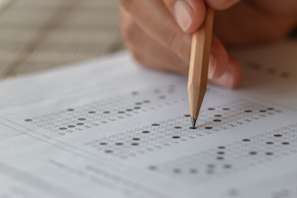In relationships, cheating is often defined as a physical act. But what about emotional cheating? Emotional cheating may not involve any physical contact, but it can have similar damaging effects on a relationship – yet many people don’t even know what it is.
This article will explore the concept of emotional cheating and its implications. We’ll help you understand the signs of emotional cheating, its consequences, and what you can do to get through it.
What is Emotional Cheating?
Emotional cheating is a complicated yet very real form of infidelity. It happens when one partner in a relationship develops an intimate emotional connection with someone else without fully disclosing it to their main partner.
What’s key to understanding here is that no sexual boundaries are being crossed, but strong mental and emotional bonds are being formed with another person outside of the main relationship. It can be deceiving as it often appears harmless at first and the boundaries can be blurry; but, the ramifications can be just as serious as physical infidelity in terms of the trust being broken in the primary relationship.
Emotional cheating can take many forms, and can start with sometimes seemingly innocent behaviour, including:
- Sharing intimate personal details about yourself (e.g., your insecurities or struggles or even issues with your partner) with someone else
- Hiding contact you have with the other person from your main partner
- Flirting with someone outside of the relationship
- Spending a lot of time with another person, both online and offline
- Sharing secrets that you don’t share with your partner
- Having an intense, emotional connection that you don’t have with your partner
- Forming a strong, emotional bond with someone outside of your relationship
- Taking part in activities or conversations that you don’t have with your partner
Reasons Behind Emotional Cheating
There are many reasons why someone might emotionally cheat on their partner.
Everyone’s situation is different, but often emotional cheating starts when one person feels a lack of connection or validation in their main relationship and then starts to long for those experiences from another person.
When they experience intense positive emotions with another person, some people start longing for more of that emotional satisfaction or intensity. With the added layer of anonymous digital communication – like messaging on social media – it has become easier than ever to intimately connect with someone outside your relationship without scrutiny or fear of repercussions.
Signs of Emotional Cheating
Signs of emotional cheating may include things like withholding information from your partner, spending excessive time communicating with the other person, or prioritizing them over their partner.
Emotional affairs often involve significant emotional investment. The person having the emotional affair often gets deeply engaged in sharing intimate thoughts, feelings, and personal information with the third party rather than their significant other. Sometimes, the individual may also experience guilt, defensiveness, or withdrawal from their partner as they become more emotionally entangled with the other person.
While emotional cheating is often harder to spot than physical cheating, there are some warning signs that can indicate a partner is involved in an emotional affair. These may include:
- They suddenly become more distant or secretive in the relationship
- Their behaviour changes, and they often seem distracted or preoccupied
- They start talking about another person a lot, often mentioning them in conversations
- They start to pay more attention to their appearance and grooming
- They start to exhibit behaviours that don’t match up with their usual behaviour
- They become less interested in being intimate or spending time together
Emotional Cheating vs. Close Friendship
It’s important to distinguish between emotional cheating and a close friendship. Having friends outside your relationship is normal and healthy, but it’s possible for some friendships to become overly emotionally intimate if you don’t set clear boundaries. An example of setting a clear boundary is shutting down flirtation or not responding to overly intimate text messages by changing the topic.
To maintain a strong romantic relationship, it’s crucial to establish emotional boundaries with individuals outside of it. This means being aware of the kinds of conversations and activities that could create a sense of emotional closeness with someone other than your partner, and avoiding them.
If you’re worried that a close friendship has turned into emotional infidelity, there are certain signs to look for. These might include spending too much time with the other person, sharing personal details that you wouldn’t normally share with a friend, or feeling more emotionally connected to them than your partner. It’s important to handle these situations carefully and with empathy for everyone involved.
Validation of Emotional Cheating as A Problem
Some people debate whether emotional cheating is as bad as physical cheating. But the truth is, emotional betrayal can be just as hurtful and damaging to a relationship. Our relationships provide us with a strong sense of personal security, knowing that our partner has choosing to look after us and care for us above all others. When we start to prioritise intimacy with another person outside of the relationship that feeling of security is shaken and our partner is likely to no longer feel central to our care and concern. It’s important to take emotional cheating seriously and not brush it off as less important than physical cheating.
Feeling upset about emotional cheating is normal and valid. The person who’s been hurt needs to allow themselves to feel these emotions and not pretend they’re not a big deal. It’s essential to acknowledge and validate these feelings to start healing and rebuilding trust.
Both partners need to recognize that emotional cheating is a serious issue that can damage the relationship. Ignoring or minimising it can make things worse and make it harder for the hurt partner to move on.
Dealing with Denial, Gaslighting, and Refusal to Acknowledge the Problem
It’s not unusual for a partner engaging in emotional cheating to deny their behaviour. They might try to justify or downplay what’s happened, making the other person feel like they’re overreacting or making a big deal out of nothing. This can lead to gaslighting, which only makes things worse and can cause further damage to the relationship.
Addressing emotional cheating with your partner requires patience, open communication, and emotional intelligence. Start by taking some time to gather your thoughts and emotions. Then, talk to your partner calmly and express your concerns. Use specific examples of behaviour that’s raised your suspicion, and focus on how their actions have affected you rather than blaming or accusing them.
If your partner resorts to gaslighting, which means they’re trying to make you doubt your feelings and experiences, trust your instincts and stay grounded in your emotions. Keep a record of incidents that have caused concern and seek support from trusted friends or a therapist to help validate your experiences.
If your partner still refuses to acknowledge the problem, consider setting boundaries and expressing the consequences if the behaviour continues. Be clear that trust and honesty are crucial to a healthy relationship, and a lack of acknowledgment and resolution can jeopardize the partnership.
Remember that you deserve respect and honesty in your relationship, and don’t let anyone make you doubt that. The lack of acknowledgment and resolution can jeopardize the partnership.
Forgiveness and Moving On
Ultimately, it’s up to you to decide if you want to forgive your partner and move forward in your relationship. When you and your partner can communicate openly and respectfully, you can work together to rebuild trust and create healthy boundaries to prevent future harm.
Forgiveness doesn’t mean that you condone what happened or that you’re pretending like it never happened. Instead, it’s a choice to let go of your anger and resentment and find peace with the situation for both of your sakes. Forgiveness isn’t always easy, and it can take time, but it’s an essential step towards healing. When couples forgive each other, they can begin to rebuild their relationship and find a deeper understanding and connection.
Remember that forgiveness is a personal decision, and you should only give it when you feel ready to do so. If you don’t feel comfortable forgiving your partner, that’s okay too. Both of you need to communicate openly and respect each other’s feelings to move forward positively.
How Counseling Can Help
Emotional cheating can put a ton of pressure on any relationship, but counselling services can help couples strengthen their bond again. Counsellors are trained to help navigate tough conversations and provide exercises and tools to help couples cope with infidelity. They can also help partners work through their emotions and focus on forgiveness and moving forward from any hurt they might have experienced.
Counsellors are experts in creating a safe space for couples to learn how to heal and build a stronger relationship. With their guidance and empathy, couples can work on rebuilding trust, improving communication, and gaining a better understanding of each other. With honest dialogue and professional help, couples can come together and mend their relationship.
Frequently Asked Questions (FAQs) About Emotional Cheating
Here are the answers to some of the most commonly asked questions about emotional cheating:
How common is emotional cheating?
Research conducted by the American Association for Marriage and Family Therapy indicates that 35 percent of women and 45 percent of men have engaged in emotional affairs outside of their primary relationships.
Is emotional cheating a sign that my partner is unhappy in our relationship?
Unhappiness in a relationship is an incredibly complex emotion. It can often be difficult to know whether your partner is unhappy and emotional cheating could potentially be one sign amongst many that may indicate that they are struggling within the partnership.
Emotional cheating on its own does not necessarily signify that a person is discontent with their relationship — it might be indicative of some deeper underlying issues, or it could simply be fleeting and harmless. Whatever the case may be, it’s important to take notice if your partner seems to have changed.
If you can tell that something has shifted between you, then consider having an open and honest discussion about what could be causing them to act out of character. Don’t hesitate — reach out and start a dialogue rather than rushing to judgment.
How can I prevent emotional cheating from happening in my relationship?
When it comes to preventing emotional cheating from infringing on a relationship, it’s important to think about two key issues. First, are you getting your intimacy and affection needs met in your primary relationship? Second, are you clear on maintaining strong boundaries with people you may be attracted to or feel close to, who are outside of your relationship? In each case, it’s key to not ignore these issues.
Make sure your intimacy with your partner is strong and don’t look for the attention you are missing outside of your relationship.
If you find yourself suddenly emotionally involved outside of your primary relationship, it’s key to immediately pull back from that person. There are a number of ways to do this. You can try by shutting down any communication that leads to intimacy, such as flirting, or offering close emotional support or sharing your own deep feelings. Alternatively, you may need to be explicit and tell the person you feel you have gotten too close and that you need some space.
Can a relationship fully recover from emotional cheating?
Yes, a relationship can fully recover from emotional cheating with the right communication and dedication to working through any issues. Of course, this largely depends on both partners’ willingness to be honest and work towards rebuilding trust between them. The journey may be long and difficult at times, but with patience and understanding, couples can come out to the other side with a stronger and healthier relationship.
Counselling can also be highly beneficial in helping couples recover from emotional cheating by providing them with the necessary tools and guidance to work through their issues. Examples of tools and processes counsellors use include:
- helping the couple to define acceptable boundaries with each other for connections outside of their relationship
- helping the hurt partner to feel understood and reassured by the other partner about their need for security
- helping the cheating partner to understand the hurt they have caused and supporting them to express regret.
How can I approach my partner if I suspect they are emotionally cheating?
If you are concerned that your partner is emotionally cheating, how you approach the conversation is paramount. This can be nerve-wracking and uncomfortable, but it’s important to remain respectful and come from a place of love, not anger. Pick a quiet moment when there are no distractions so that both of you can focus on having a constructive conversation.
- Try to approach the conversation in a fact-based manner, focusing on your observations rather than being accusatory. Discuss how their behaviour has made you feel including any fears you have and be honest about your worries.
- Allow your partner some room to defend their actions and don’t lean into trying to pin them down. With time to reflect on their actions they maybe more willing to take responsibility.
Remember that even if emotions run high during the discussion, it doesn’t mean the relationship is doomed. All relationships go through ups and downs; however, understanding emotions related to cheating early can help mend a connection before it becomes broken beyond repair.
Is it possible for someone to emotionally cheat without realising it?
Emotional cheating doesn’t just happen because someone is actively looking for something more; oftentimes, people can find themselves in a situation without even realising it. Developing a deep emotional connection with someone without meaning to and unknowingly crossing boundaries in a relationship is possible. If this happens, both partners need to be honest about what has occurred and examine their feelings. This can be tricky territory, but having an open dialogue about where things stand is critical to ensure the relationship stays healthy.
Can emotional cheating lead to physical cheating?
When two people have an emotionally intimate connection, it can often lead to physical intimacy. After all, once someone has opened up their heart and shared their feelings with another person, they may be more likely to take the next step and become physically involved with them. While not every case of emotional cheating necessarily leads to physical betrayal, it is definitely a possibility since feelings easily bridge the gap between thoughts and actions.
Conclusion
Emotional cheating can be just as damaging to a relationship as physical infidelity. Since it involves such an intimate level of connection and trust, it can cause considerable hurt and devastation to you or your partner.
While the thought of being cheated on in any capacity is difficult to bear, couples can better protect their relationship from suffering its consequences by understanding the signs and implications of emotional cheating.
Both partners need to take the time to honestly examine their feelings and be open with each other if they suspect emotional cheating is occurring. With patience, understanding, and honest communication, couples can better navigate any challenges that come their way and create a healthier, more trusting bond. This is achieved by establishing clear boundaries with people outside your relationship and better attending to your intimacy needs inside your relationship.
While counseling cannot undo the damage caused by emotional cheating, it can help couples understand why it happened and provide them with the necessary tools and guidance to work through their issues. With this support, couples can regain each other’s trust and make sure that their relationship continues to thrive no matter what challenges come their way.






















